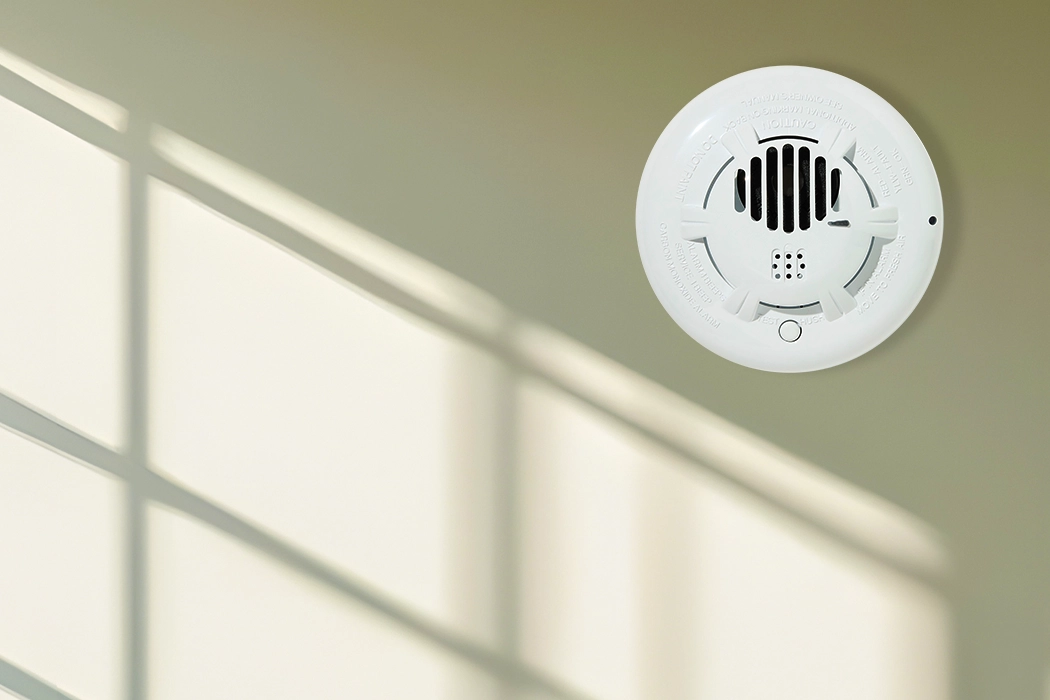Can Carbon Monoxide Detectors Detect Propane?

Propane can be a great tool for keeping your home warm or even lighting up your grill. Unfortunately, high levels of propane in your home can be dangerous for your family and pets. While there may still be some remaining dangers to contend with, these are often things that security systems can’t accommodate, warn for, or help homeowners avoid. For example, it can be challenging to determine if your home is experiencing a propane leak, or an issue with carbon monoxide.
Does a carbon monoxide detector detect propane? Many homeowners mistakenly think that a carbon monoxide detector will be able to detect any levels of propane that would signify a problem. Unfortunately, that’s not the case. Even if propane does leak into your home, a carbon monoxide detector isn’t the proper tool to warn you of this danger.
What is Carbon Monoxide?
Carbon monoxide (CO) is a colorless and odorless gas that can come from things like a car running in the garage or a gasoline-powered generator venting onto a porch or patio near an open door. There are carbon monoxide detectors available, including those that are battery-powered and those that are hard-wired into a home’s electrical system. Additionally, combination detectors designed to handle smoke and carbon monoxide are available. These detectors can be paired with other life safety devices to ensure your home is protected from smoke, carbon monoxide, and more.
Understanding what a carbon monoxide detector can and can’t do is a vital part of customizing the right security system for your home. The problem with all of the variety of carbon monoxide detectors is that they can’t alert for propane. As a result, people who use propane for their heating or cooking needs may mistakenly feel that they are protected when in fact, they are not.
A carbon monoxide detector can’t sense a leak in a propane tank, so homeowners could still be at risk because their detectors won’t alert them. Many homeowners look for a distinct odor, similar to the scent of rotten eggs, to determine when a propane leak is taking place. Other homeowners may be able to hear the subtle sound of propane escaping the gas line. However, if you believe a gas leak is taking place, leave home and immediately call your gas company and emergency services. Make sure your entire family, including pets, are also out of your home and taken to a safe area like your front yard or a trusted neighbor's house.
What is Propane?
Propane is a type of gas that some homeowners use for various reasons, such as operating a stove or fireplace, camping, or as an alternative to natural gas. Typical propane usage mandates homeowners to have a tank near their home that is filled regularly. They can then use that propane for their heating or cooking needs. In addition, many rural homeowners require propane tanks if their houses aren’t entirely electric, often because natural gas lines don’t reach their locations.
While most security systems have detectors that monitor worrisome events, including carbon monoxide flare-ups, many of these systems aren’t equipped to notify you if your propane levels are too high.
Why is Propane Dangerous?
When propane enters your home, it presents a possible inhalation hazard if released in a confined space, as it displaces oxygen and acts as a simple asphyxiate. Some other symptoms include: lightheadedness, irregular heartbeat, general weakness, cough, convulsions, diarrhea, dizziness, fever, nausea and vomiting, burning sensation, and shallow breathing (MedlinePlus). If you are suspicious that your home has sprung a propane leak and you feel any of these symptoms, make sure to leave the home for fresh air and seek medical help right away like calling poison control.
How Carbon Monoxide Detectors Work
Carbon monoxide detectors work by recognizing gases that people can’t smell or see. These detectors are very sensitive, but to work optimally they must be properly placed. Since they are designed to alert the homeowner before the carbon monoxide reaches deadly levels, they need to be installed on each floor of the house. For example, if bedrooms are occupied on multiple floors, then the carbon monoxide detectors should be close enough to the bedroom for the audible alarm to wake people from their sleep.
How to Choose a Carbon Monoxide Detector
There is a large variety of carbon monoxide detectors on the market to accommodate a wide range of needs. When you are shopping for your carbon monoxide detectors, you should first consider what your priorities are. Is it important to you for your detector to connect to your phone? Are you trying to stick with a specific budget? Would you prefer to combine it with your smoke detector to reduce the number of sensors around your home? No matter what your answers are, you can choose the best option for you and your family backed by the 24/7 professional Brinks Home™ monitoring.
Monitor Your Entire Home with Brinks Home
Brinks Home’s smart home security equipment includes life-saving technology, including monitored smoke alarms and carbon monoxide detectors. For complete home protection, customize your security package with a touchscreen alarm panel, indoor cameras, motion detectors, and more.
Contact Brinks Home to find out more about monitored home security plans that meet your needs.



